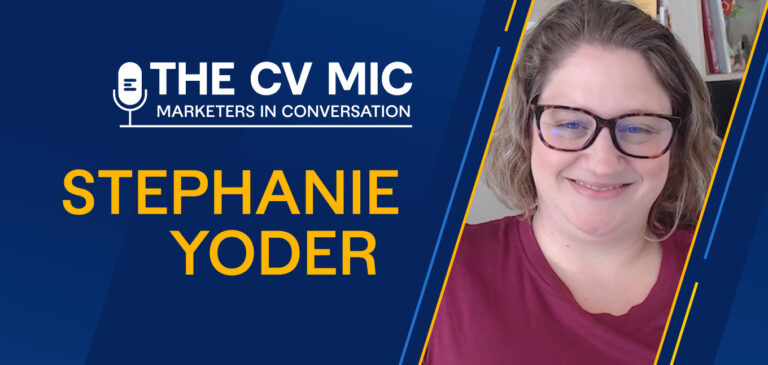When you’re a freelance writer, it’s easy to feel like an outsider looking in. You often toil job to job, shuttling between pitching clients and producing work. And no matter how busy you are, it can sometimes seem like the people working full-time at agencies are having all the fun doing the work that wins advertising awards, not to mention the hearts, minds and retweets of millions.
But then one day, you get the call. An agency wants to bring you in. They’re consumed with a new campaign launch and due to a few poorly planned summer vacations, they need help. And fast. They need… you. Congrats, this is your opportunity to shine.
You made it past the in-house recruiter and all that strategic work you did on your portfolio has clearly paid off. But are you ready to start doing actual work for the agency? Do you know what’s expected of you from day one? And on the flip side, do you know what to expect from them, especially if it’s a top shop with major brands on their client list? One known for doing solid creative in automotive (Honda), home furniture (La-Z-Boy) and insurance (Farmer’s)? An agency such as RPA (Rubin Postaer & Associates)?
As one of the last independently owned ad agencies, RPA has handled national advertising and media for Honda and Acura for the better part of 30 years. I got my first job in advertising at RPA (2003-2006) working alongside many talented people. One of those people, J Barbush, is currently a Vice President/Creative Director, Social Media at RPA. Barbush has been a mainstay there for 20 years, having cut his teeth on all things digital before the Internet was even really a thing. Over the course of his career, J’s made creative contributions to a slew of high-profile initiatives for Honda including Project Drive-In and this year’s “sensible” April Fool’s joke. When he’s not leading his team, he also writes for AdWeek when he’s got something on his mind.
In order to help freelancers hone the right mindset when it comes to working with an agency, Barbush has some advice and actionable tips on how to best prepare yourself for your agency stint – especially if you hope to turn it into a steady gig.
Lesson #1: When it comes to your portfolio, don’t be afraid to make choices.
The first hurdle to getting a job or gig at an agency is usually your “book” or online portfolio. Getting past the in-house recruiter is usually the first step. Your portfolio will usually then go past the creative director. Should you put everything you’ve ever worked on in there, trying to impress via bulk? Or curate a collection with only the best samples of your work? Barbush is a fan of the latter.
Barbush: Sometimes I feel like people put things in a book without really thinking: What is that greater narrative? The greater story I’m trying to tell? Who is my audience and how do I get there? The biggest problem in evaluating work as a Creative Director and evaluating people’s books is the inability to make choices. A lot of times with less experienced creatives, I’ll get hit with 15 things on a piece of paper that aren’t really, really, really thought through. I don’t think it’s my job to take things from 15 to three.
I think it’s the writer’s job.
Barbush Tip #1: If you’re ever going to have any sort of mobility and be able to evaluate other people’s work at some point, start by evaluating your own work. That’s the easiest and the hardest thing to do because you love everything… With writing, I overwrite the shit out of things and then from there, I make it my process to cut and cut and cut. It’s probably one of the hardest things a writer can do because we love every word after we do it… and then we hate it (he laughs). It ends up being really important to be able to evaluate your own work. Eventually someone’s going to be looking and reading and evaluating this work. So make sure it’s in an order that tells the story. Making sure it has a narrative to it somehow that expresses who you are.
Lesson #2: Don’t just come up with ideas, know how to sell them.
When you’re working on-site at an agency, coming up with smart, workable ideas will set you apart as a freelancer and could even win you kudos at the morning stand-up. But, according to Barbush, there’s one other part of the equation you won’t want to forget.
Barbush: A lot of people, especially creatives, spend so much time putting together an idea and nuancing it and noodling it and getting it to the point that they feel is perfect… and then they give themselves 10 minutes to rehearse or go through it. Sometimes maybe they don’t even rehearse how they’re going to sell this idea. How they’re going to map it back to what the strategy is.
Barbush Tip #2: One of the things I’m always trying to encourage with the teams is that selling this idea is probably the most important thing. Don’t de-value that just because the work’s done and say, “Here it is!” Work doesn’t sell itself, you need to be able to do it. When people are putting together work, I’d like to see work that seems unsellable, but they found a way to sell it.
Lesson #3: Check in along the way, ask questions, form relationships.
Once you start working in-house at an agency, it’s easy to get an assignment, strap in a set of earbuds and then lose yourself for the better part of a day in a Spotify playlist until your ideas are ready to present to a Creative Director. Writing is rewriting and sometimes perfectionism may seem like the best way to unearth the best possible version of the idea. But that’s not always the best approach.
Barbush: It’s easy for a freelancer to walk in and feel like they’re paid to play. But it’s the ones that can assimilate to the culture, that get to know some people, and ask a lot of questions, and find out how to get the answer that I like. The self starters. I think that’s really, really important. Some people will come in and bury their heads, go in an office, produce great work and sometimes you need that. But if the idea is to parlay that into something that is repeatable or full time, it really comes down to the relationships that are made, you know what I mean? People always want to work with people that they know that they can trust.
Barbush Tip #3: The reason you bring someone in for freelance is because you’re up against the gun yourself. You’re in a predicament that you can’t handle with your current staffing. That’s a little stressful for everyone. So the freelancer should come in and look at that from that perspective and find ways to make sure the people that are evaluating their work are feeling good…
I think face-to-face is really important, especially when it comes to building trust and relationships. Make them feel comfortable and confident and always communicate really well and have multiple check-ins. If you can make them feel good, that will make the whole process much better and you will be someone that they’ll bring in again.
Lesson #4: Do research before you start the gig.
When it comes to getting started on the right foot at an agency, some may try to lean on their portfolio, charm and sheer desire to crank out genius off the cuff. But don’t. As Barbush says, one thing can help your odds for success increase exponentially…
Barbush: I like people who do their research. I like when people come in and they’re able to go through some of the material and ask for more and figure out what’s going on. I think that time is really important because they’re gaining an understanding. We’ve worked on brands for years [at RPA]. We understand every nuance. Sometimes with outside vendors… It can take up a lot of valuable time to get to that point. You don’t want to go back and forth 10 times before you dial stuff in.
Barbush Tip #4: I think it’s important for the freelancer to come in and, if they know what they’re going to be working on, do whatever they can before setting foot in the door to understand the client. That will save so much time and put people at ease. A lot of times, the expectations are higher [for a freelancer]… That’s the funny part of it, the rub. You’re new to this brand, but expectations are higher for a hot shot freelance team who’s going to come in and come up with the crazy, big idea.
It’s like it’s almost the designated hitter. They have one job. Boom. Can they do it?
Lesson #5: As a freelancer, don’t be afraid to take a little risk.
As a freelancer coming into a new situation, you’re in the rare position to lend a valuable outside perspective to the agency who hired you and the work. Don’t underestimate the power of having fresh eyes, and distance from the client, as they can greatly benefit a campaign.
But also, with great power comes great responsibility…
Barbush: A place where you want to ride the line a bit is to make sure you’re not just delivering what is expected, things you know will get sold. As a freelancer coming in, you can take a little more risk. Understand the client and the work, but know where you can push the work and know where you have more creative freedom by the nature of not working on it.
Barbush Tip #5: Break some of the rules if you want to. Know, based on the past work and talking to the creative directors, what that comfort level is for pushing things out. Sometimes it’s just about asking: How far do I push? What are the guardrails on this work? I think the more you can be specific versus just guessing on stuff, people appreciate that. Personally, I’d just sit them down for a half-hour and tell them where we could go with it. It’s good for you to have a point of view, as well, to balance that out.
Lesson #6: If you’re going to pitch social ideas, make sure you’re on the platform.
Most creatives have social media accounts, and if you do, it behooves you to know that these casual posts (assuming they’re public) can be viewed as an extension of your brand. How you post, what you say, how you put words to pictures… It all matters. And once you start working a gig in-house at an agency? There’s another thing you’ll want to keep in mind with regards to social according to Barbush.
Barbush: I’ve always had this philosophy that participation leads to inspiration. That’s something I tell my team. I’ve been in a couple of meetings where people who were in strategy, a little higher up than me, would sort of challenge something our team would present about a platform. Then I would just flat out ask: Are you on that platform? And they say, no. Then I say, Well, how can you have an opinion about a platform, or how someone would approach a platform, or how work will be received on that platform, if you’ve never been to that platform? How do you tell people the best places to go in Paris if you’ve never stepped foot there?
Barbush Tip #6: Participate in the platform you’re building work for. Because if you’re not seeing what’s working, it’s really hard to be a perceived expert in that. If I’m looking at someone who’s an art director, I want to see how their eye carries on into their personal life on Instagram, their vacation photos, how they make the most of something that maybe other people wouldn’t think of. It really becomes a good indicator of their approach all around. How they’re using the platform shows they understand it…
Are you a writer looking for freelance jobs or an ad agency in need of a talented freelance writer? Bring good vibes with these scribes by trying out ClearVoice’s all-in-one agency solution for managing the client lifecycle, building teams and maintaining healthy margins.







